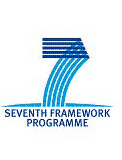Ambiguity Function Side-Lobes Reduction in WiFi-Based Passive Bistatic Radar
| Author(s) | Colone Fabiola, Falcone Paolo, Lombardo Pierfrancesco, Bucciarelli Tullio |
| Organization(s) | University of Rome "La Sapienza" - INFOCOM Dept. (Italy) |
| Conference | Riunione Annuale GTTI 2009 |
| Conference Date | 23 - 25 June 2009 |
| Conference Location | Parma (Italy) |
|
Abstract In this paper the feasibility of a WiFi transmissions based passive bistatic radar is analysed. The auto-correlation function of this waveform of opportunity is characterized with reference to typical signals broadcasted by a 802.11 access point. The obtained auto-correlation function is shown to yield a high sidelobe level which strongly limits the useful dynamic range. These sidelobe structures have a deterministic nature mainly related to the exploited modulation and coding schemes. Proper weighting networks are proposed to cope with this limitations based on the knowledge of the expected value of signal autocorrelation function. The performance of the proposed technique is evaluated against simulated data generated according to the 802.11 Standards. Moreover the preliminary results are presented against a real data set collected by an experimental setup. The proposed approach is shown to yield a significant improvement of the peak to sidelobe ratio thus making the considered waveform more attractive for PBR local area surveillance. |
|
| Full Text | document PDF |
Document Actions


